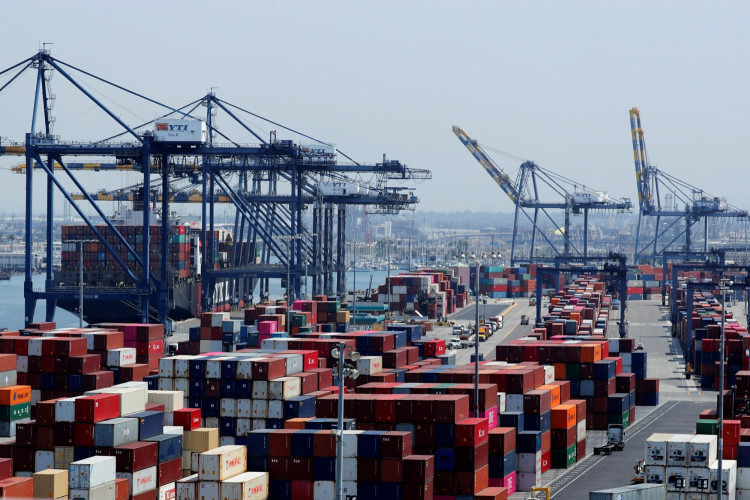China announced Friday that it will begin charging U.S.-linked vessels for docking at Chinese ports starting October 14, in direct retaliation against new U.S. port fees targeting Chinese ships entering American harbors. The reciprocal measures mark the latest escalation in the two nations' trade and maritime standoff.
The Chinese Ministry of Transport said the U.S. policy "seriously violates international trading principles and seriously damages China-U.S. maritime trade." Beijing's new levy - 400 yuan ($56) per net ton - mirrors the $50 per net ton fee imposed by Washington. The rate is scheduled to rise in phases through 2028, reaching 1,120 yuan ($157) per ton.
The announcement came hours before President Donald Trump hinted he may cancel a planned meeting with Chinese President Xi Jinping in South Korea later this month, citing Beijing's "very hostile" moves on trade. "Dependent on what China says about the hostile 'order' that they have just put out, I will be forced...to financially counter their move," Trump wrote on Truth Social.
China's countermeasure applies broadly to vessels owned, operated, or built by U.S. entities, as well as ships with at least 25% U.S. ownership. The transport ministry said it was acting in "justified self-defence" after Washington's decision to penalize Chinese-built or Chinese-operated vessels.
"This could be quite an impact," said Lars Jensen, CEO of Vespucci Maritime, noting that companies such as Seaspan, which owns over 100 ships chartered to global lines, could face fees in both countries. U.S.-based Matson confirmed it would be subject to the Chinese charges and had "no plans to change its service schedule."
The U.S. policy stems from a trade probe aimed at countering China's dominance in global shipbuilding. China produces 53.3% of the world's ships, while the U.S. accounts for just 0.1%, according to the Center for Strategic and International Studies. The Chinese shipbuilding sector has long been viewed as a key pillar of both its commercial and naval power.
Beijing called the U.S. measure "discriminatory" and said it "seriously disrupts the stability of the global supply chain." Analysts said the new fees would likely raise shipping costs and slow trade flows. "In the short term, this will result in an increase in costs for U.S. consumers, a decrease in profits for shippers, and a small decline in demand for exports to the U.S. in certain categories," said Michael Hart, president of the American Chamber of Commerce in China.
Peter Alexander, managing director of Z-Ben Advisors in Shanghai, criticized Washington's approach as short-sighted. "The Trump administration continues to underestimate China and this needs to stop," he said. "China can give as good as it gets and has demonstrated a willingness to take direct action."





